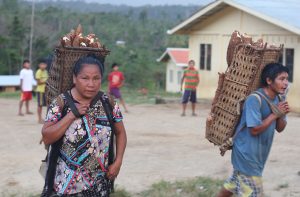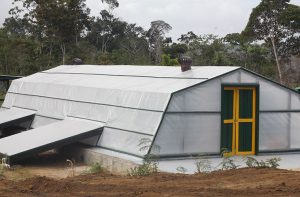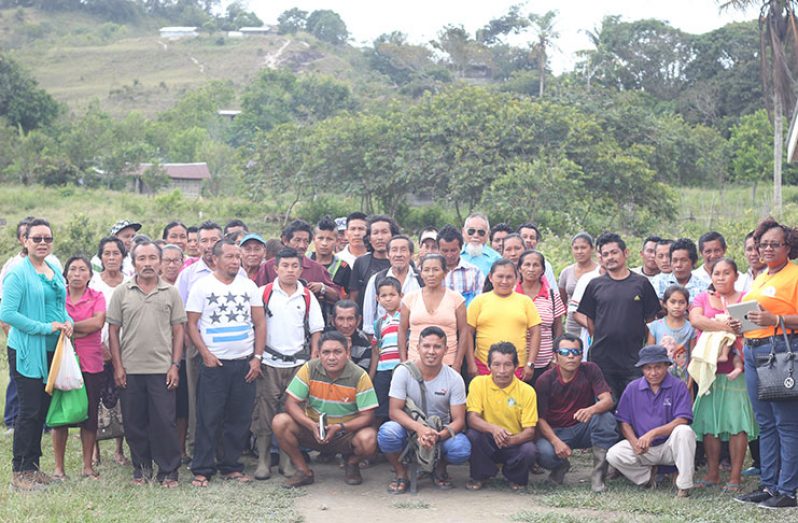FARMERS in the Region Eight community of Paramakatoi and nearby villages of Mountain Foot and Bamboo Creek have formed themselves into an agriculture co-op as they prepare for the opening of a processing facility and large scale farming.
Last weekend the residents, 58 of them, were led through the process by Minister within the Ministry of Indigenous People’s Affairs, Valerie Garrido-Lowe and Chief Co-op Development Officer in the Ministry of Social Protection, Perlina Gifth, with support from fellow officer, Nickesha Williams.

The Paramakatoi Agriculture Co-op is expected to be fully registered in the coming weeks, approximately four decades after a similar group was formed in the mountainous Patamona community.
This time though, members are confident of its longevity, more so because of external help.
Chairperson of the new group, Odessa Paul, said she believes that farmers in the co-op will be able to support each other and work towards further developing their communities.
Support and structure were the underlying themes of the co-op development officers, who spent several hours over two days highlighting the benefits of joining the body.
The first project earmarked for the co-op is the planting of organic tomatoes. The fruit will then be dried at the new solar drying and processing facility which has been built in the community.
The dried tomatoes will be transported to Georgetown either to be packaged as sun-dried tomatoes or to be made into sun-dried tomato salad dressing at the Institute of Applied Science and Technology (IAST).
The project, the Paramakatoi Flavours, is set to revolutionise the community. Along with the Ministry of Indigenous People’s Affairs and IAST, the Ministry of Social Protection and the National Agricultural Research and Extension Institute (NAREI) are also on board.
Minister Garrido-Lowe and Director of IAST, Professor Suresh Narine, designed the project after consultation with residents in the communities.
In August last year, with $59M from the Government and $4.5M from the Canadian High Commission, the project was officially launched.
At a recent workshop, Minister Garrido-Lowe pointed out the importance of the co-op and the need for farmers to get themselves involved in the process.

She said that the upcoming tomato project is extremely important to the community.
“You are doing this for your livelihood, to give yourself and your children a better life. This industry will transform your community. It will create employment—money will circulate.”
The minister said that all systems are in place to make the project a successful one. She said that the farmers are in good hands with qualified persons, such as resident Celpha Simon, a qualified agronomist, who studied in Cuba and Marlon Williams, the Agricultural Extension officer from NAREI.
The farmers have been planting for generations, but due to a lack of demand, they had not ventured into large-scale farming. Given that most people farm in the communities, selling is also sometimes difficult. Under the tomato project the farmers will however supply thousands of pounds for processing every month.
What is also appealing to them is that once they deliver their tomatoes, they will get paid within 24-72 hours.
The oldest farmer in the co-op, 72-year-old Adwin Nagalla, has been farming for over half a century. He sees the tomato project “as very appealing”.
“I think that the project will work and it will be good for the community.”
Like the other farmers, Nagalla is also optimistic that the project will secure a brighter future for generations to come.




.jpg)










